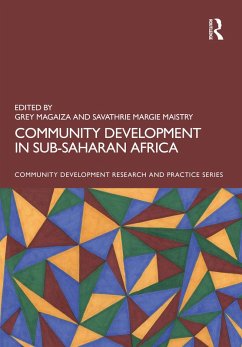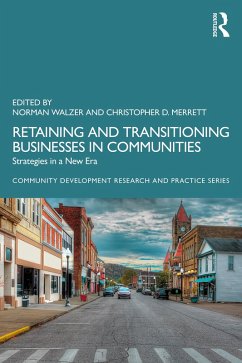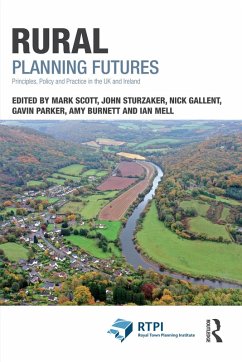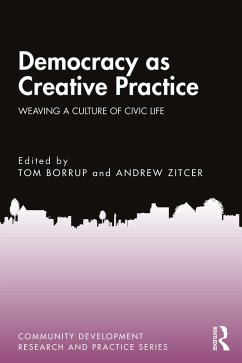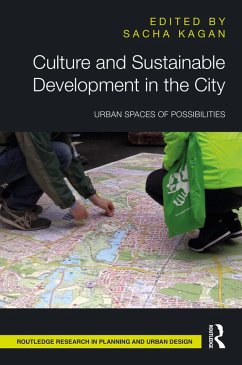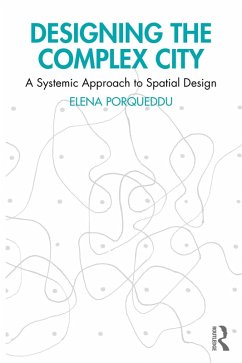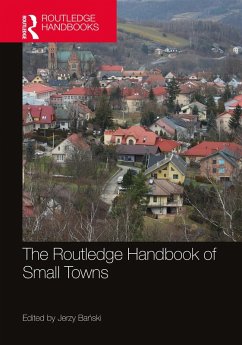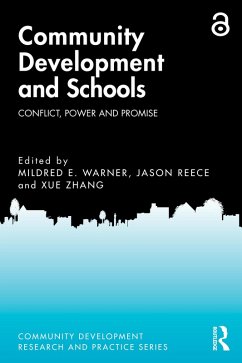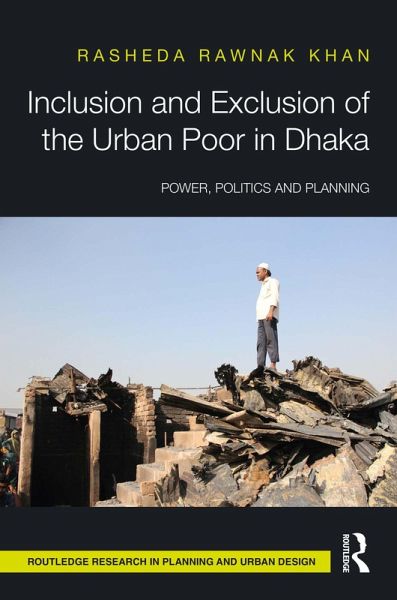
Inclusion and Exclusion of the Urban Poor in Dhaka (eBook, ePUB)
Power, Politics, and Planning
Versandkostenfrei!
Sofort per Download lieferbar
39,95 €
inkl. MwSt.
Weitere Ausgaben:

PAYBACK Punkte
20 °P sammeln!
Inclusion and Exclusion of the Urban Poor in Dhaka explores how the inhabitants of poor neighborhoods in Dhaka, Bangladesh, gain inclusion in the city at the face of exclusion. The book considers how the people of poor neighborhoods encounter the exclusionary behavior of city development, and how their inclusionary attempts have influenced the urban design.The book is presented in two parts: first, it explains how people in poor neighborhoods face exclusion because of the imbalance of power and politics. Second, it demonstrates how the existing exclusion of urban poor is affecting their strate...
Inclusion and Exclusion of the Urban Poor in Dhaka explores how the inhabitants of poor neighborhoods in Dhaka, Bangladesh, gain inclusion in the city at the face of exclusion. The book considers how the people of poor neighborhoods encounter the exclusionary behavior of city development, and how their inclusionary attempts have influenced the urban design.
The book is presented in two parts: first, it explains how people in poor neighborhoods face exclusion because of the imbalance of power and politics. Second, it demonstrates how the existing exclusion of urban poor is affecting their strategies to gain access to urban services through people's power and politics. Focusing on the transdisciplinary field of urban anthropology, the chapters uncover the urban forces, policies and actions that facilitate urban politics. It also investigates the people who live in poor neighborhoods, who in the face of exclusion, have included themselves in urban development planning and design by employing diverse strategies against those forces in the urban politics, e.g., accepting dominance, bargaining, or having control over their lives. This book will recontextualize an ethnographic inquiry into the exclusion and inclusion of the people within city development design, plans and innovations in applications of anthropological theory and methodology.
This book will encourage the reader to understand the politics of state's development projects and plans, and furthermore instigate the city government, planners and policymakers to focus on the people's political power and agency that enables them to achieve inclusion. It will therefore be of interest to researchers and students of urban planning and development, urban geography, and urban anthropology, as well as planning professionals and policymakers.
The book is presented in two parts: first, it explains how people in poor neighborhoods face exclusion because of the imbalance of power and politics. Second, it demonstrates how the existing exclusion of urban poor is affecting their strategies to gain access to urban services through people's power and politics. Focusing on the transdisciplinary field of urban anthropology, the chapters uncover the urban forces, policies and actions that facilitate urban politics. It also investigates the people who live in poor neighborhoods, who in the face of exclusion, have included themselves in urban development planning and design by employing diverse strategies against those forces in the urban politics, e.g., accepting dominance, bargaining, or having control over their lives. This book will recontextualize an ethnographic inquiry into the exclusion and inclusion of the people within city development design, plans and innovations in applications of anthropological theory and methodology.
This book will encourage the reader to understand the politics of state's development projects and plans, and furthermore instigate the city government, planners and policymakers to focus on the people's political power and agency that enables them to achieve inclusion. It will therefore be of interest to researchers and students of urban planning and development, urban geography, and urban anthropology, as well as planning professionals and policymakers.
Dieser Download kann aus rechtlichen Gründen nur mit Rechnungsadresse in A, B, BG, CY, CZ, D, DK, EW, E, FIN, F, GR, HR, H, IRL, I, LT, L, LR, M, NL, PL, P, R, S, SLO, SK ausgeliefert werden.





